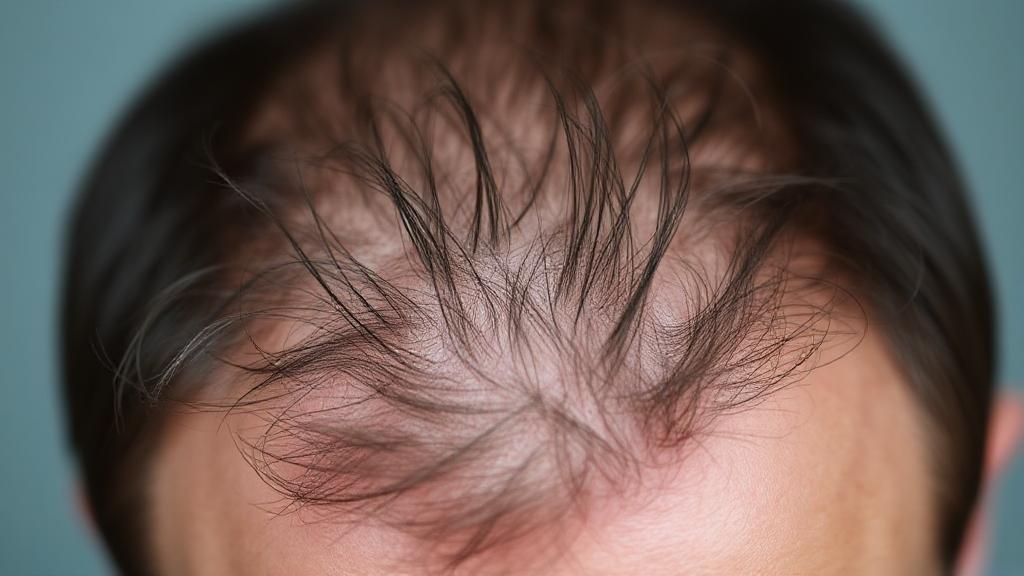Understanding Testosterone and Hair Loss 🔬
The Hormone Connection
Testosterone is a steroid hormone primarily produced in the testicles in men and the ovaries in women, with small amounts also produced by the adrenal glands. While testosterone itself doesn't directly cause hair loss, its derivative, dihydrotestosterone (DHT), plays a crucial role in the process. DHT is formed when testosterone interacts with an enzyme called 5-alpha reductase.
How DHT Affects Hair Follicles
When DHT binds to receptors in hair follicles, it triggers a process called miniaturization. This process:
- Shrinks hair follicles
- Shortens the hair growth cycle
- Causes hair to become thinner and finer
- Eventually leads to baldness in affected areas
Genetic Factors 🧬
Not everyone is equally susceptible to DHT-related hair loss. The condition known as androgenetic alopecia or pattern hair loss affects:
- Up to 50% of men by age 50
- Approximately 25% of women by age 50
Common Symptoms
Signs of testosterone-related hair loss include:
- Thinning hair on the scalp, particularly on the top and crown
- Receding hairline
- Excessive hair shedding
- Slow hair growth
Treatment Options
Medications
- Finasteride (Propecia): A prescription medication that inhibits the conversion of testosterone to DHT
- Minoxidil (Rogaine): An over-the-counter topical treatment that stimulates hair growth
- Dutasteride: Similar to finasteride but more potent
Natural Alternatives
Nutritional Support
Lifestyle Changes and Prevention 🛡️
"Prevention is better than cure" - This old adage holds particularly true for hair loss.
Consider these preventive measures:
- Maintain proper scalp hygiene
- Avoid harsh chemical treatments
- Manage stress levels
- Ensure adequate nutrition
- Exercise regularly
Advanced Treatment Options
- Hair Transplant Surgery: A procedure where hair follicles are moved from a donor site to a balding area
- Low-Level Laser Therapy (LLLT): Uses a low-level laser or light-emitting device to stimulate hair growth
- Emerging Technologies: Research continues in areas such as stem cell therapy, platelet-rich plasma (PRP), and hair cloning
For more information on hair loss treatments, visit the American Academy of Dermatology or American Hair Loss Association websites.
Impact on Mental Health
Hair loss can significantly affect self-esteem and confidence. It's important to:
- Acknowledge emotional impacts
- Seek support when needed
- Consider counseling if struggling with image issues
- Join support groups or online communities
Remember that while testosterone's relationship with hair loss is complex, understanding this connection empowers you to make informed decisions about treatment and prevention strategies.
